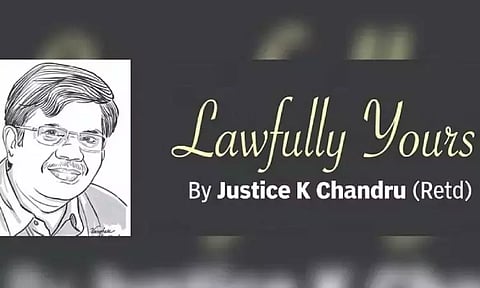

CHENNAI: Corporal punishment: Onus on teacher to prove no caste discrimination involved
Q. Recently, a case has been registered against a government school teacher for caning girl students for not doing their homework properly. The mother of one of the girls felt offended and petitioned with police. Interestingly, some are trying to attribute casteist motives since the victims belong to the SC community and the teacher to another community. Can a teacher scolding or inflicting some reasonable punishment on a student constitute an offence? Are teachers supposed to look into caste details before dealing with issues of maintaining discipline or inculcating good habits among students?
— Priya Perumal, Triplicane
No student can be inflicted with physical punishment or mental harassment as it is prohibited under Section 17 of the Right to Free Compulsory Education Act, 2009 irrespective of whether they belonged to a Scheduled Caste community or any other community. If the teacher does not know that those affected children belonged to the SC community, then it is her/his burden to prove the same before a trial court. No one can design ignorance as during teacher’s training, these issues have been taught.
Suo motu review under Sec 397 of CrPC meant to prevent miscarriage of justice
Q. A Madras High Court judge has taken a suo motu revision against the acquittal of a Tamil Nadu minister in a disproportionate assets case, and an influential political leader from the party in power at the Centre has thanked the judge for the same. Is this not judicial overreach or judicial adventurism?
—Baskar Seshadri, Chennai
The learned judge has the power to invoke Section 397 of the Code of Criminal Procedure (CrPC) to suo motu review any order of the lower court and see whether it is irregular. A similar power is available to a Sessions Court as well. It is to prevent miscarriage of justice that such special powers have been granted. However, whether the judge who found the irregularities himself can hear the revision case or whether it should go to another judge is something the Chief Justice will decide as a master of the roster and who has full powers to distribute work to all judges.